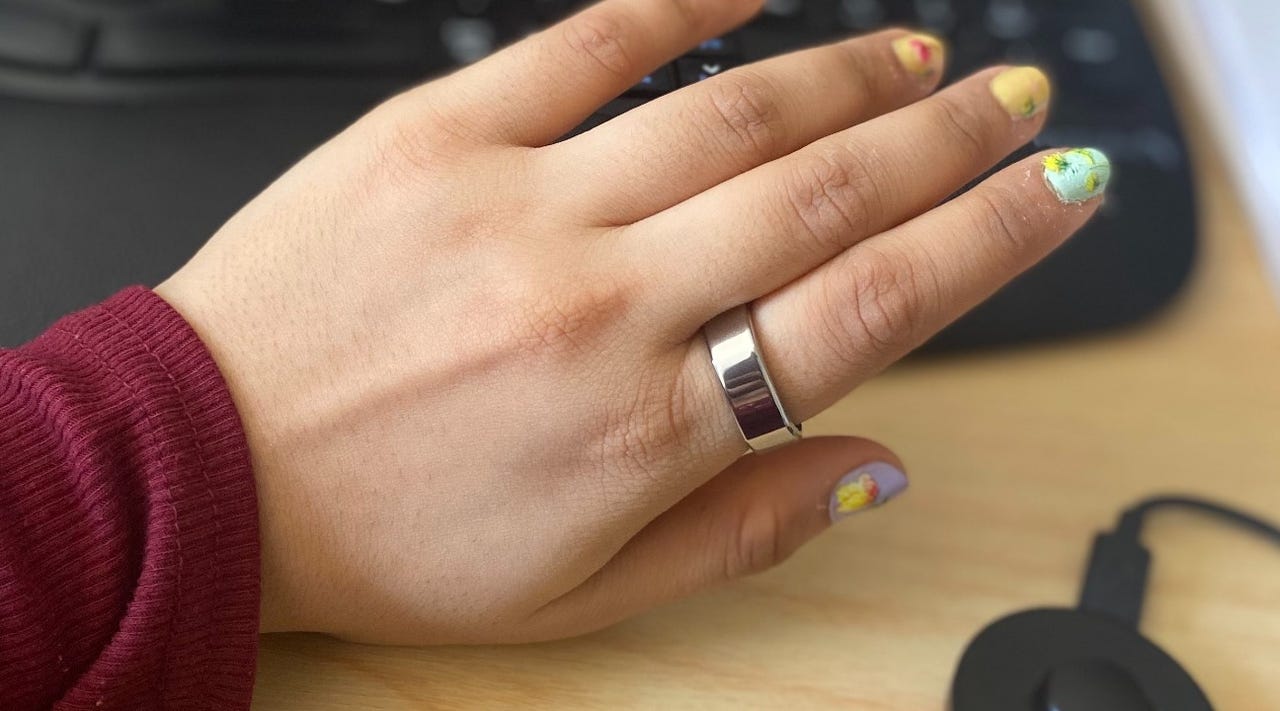
































We all deal with stress -- it's an unavoidable part of life. Even the most relaxed people have stressors: A new job, a new kid, a death in the family; we can't just run away from stress. However, help is at hand. Aside from tracking signs of stress in our body, which the Oura Ring also does, the device now measures the wearer's ability to handle and recover from it.
The Oura's new Resilience feature, which focuses on how the body manages stress and recovers from it, differs from other smartwatches and smart rings that can detect high stress levels at a given time. This new feature measures how quickly and effectively you can recover from stressful situations by analyzing different metrics gathered by the Oura ring, such as how fast your heart rate stabilizes.
Also: I've tried Vision Pro and other top XR headsets and here's the one most people should buy
"If you're giving a talk on a big stage, you would expect to see your heart rate going up, your heart rate variability might drop, your hands might get a little sweaty -- you see all these physiological changes happening, and those are good changes," Oura's head of science, Shyamal Patel, told . "But then right after your talk is over, you're able to just come back. Your physiology can recover: your heart rate drops -- and that happens very quickly. That's Resilience."
Think of Resilience as a window into your capacity to handle stress and a way to act on it. In Oura, the feature can differentiate between stress experienced during the day and the body's recovery, which can happen during the day, but mainly during sleep at night. The feature also analyzes how your body can recover from stress in different daily situations.
"You can build Resilience. You can introduce stress management techniques and approaches to try to give your body that ability to recover and train your body," Patel said. "Our goal is to stimulate a better understanding of your stress and how you can become better at dealing with it."
Also: Samsung is trying to beat Apple to these two life-changing health tracking features
The company wants to shift the wearer's objective away from eliminating stress, as that's not realistic or even possible for most people. Instead, the objective is to help the wearer become more resilient and have the tools to manage stressful situations -- and that begins with having insight and actionable data.
Stress tracking is a familiar concept in wearables. The approach provides straightforward assessments during the day, such as an elevated heart rate alert or a prompt to do some guided relaxation techniques. Oura's new feature offers more.
Also: Trouble sleeping? How I use this$19 wearable to fall asleep near instantly
"Resilience is a slower-moving metric because it looks [at data] over a window of two weeks. Some users might see their Resilience change two or three times a month, and some users might see it less frequently," Patel explained. "Resilience is one of those metrics that changes a little bit slower, but that's by design."
The goal of Resilience is to give Oura wearers the information they need to improve their approach to stress management. There are different ways you can start to deal with stress, including focusing on good health fundamentals (quality sleep, regular exercise, a healthy diet), exposure to hormesis techniques, practicing meditation, and maintaining social connections.
Oura developed the Resilience feature with scientific grounding. Patel said the company partnered with the University of Southern Denmark to validate the Resilience metric's alignment with subjective feelings of recovery. He expects researchers to perform external validation, much like in the case of the Oura Ring's sleep-tracking feature, which has been the subject of studies.
 Hot Tags :
Tech
Hot Tags :
Tech